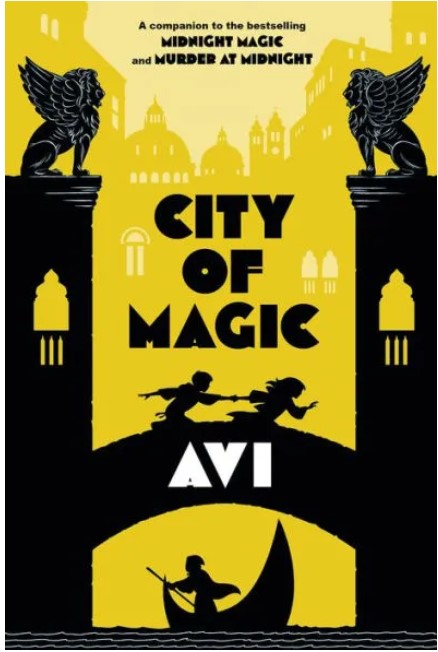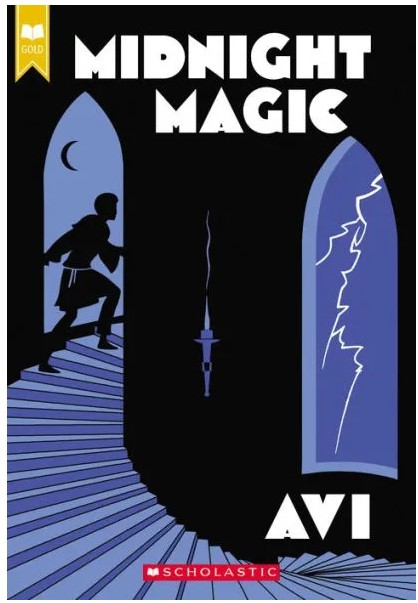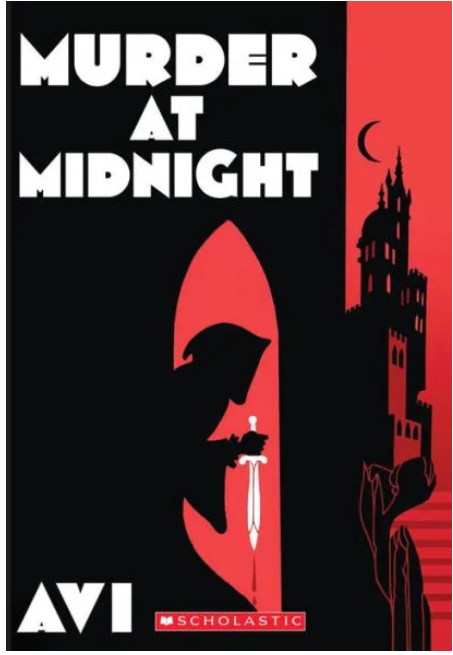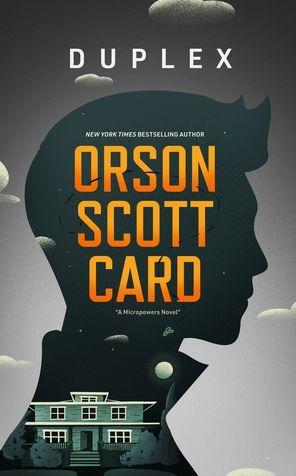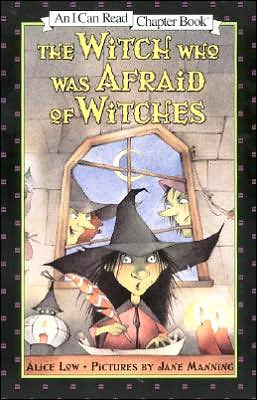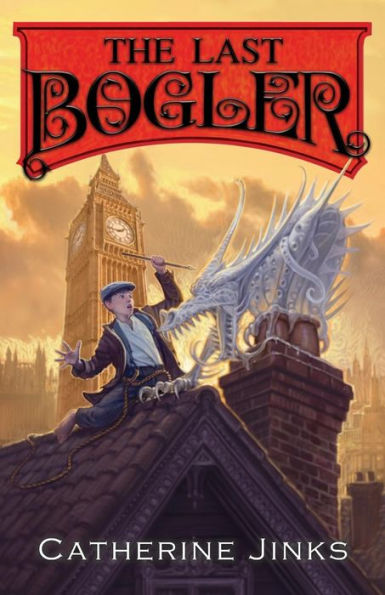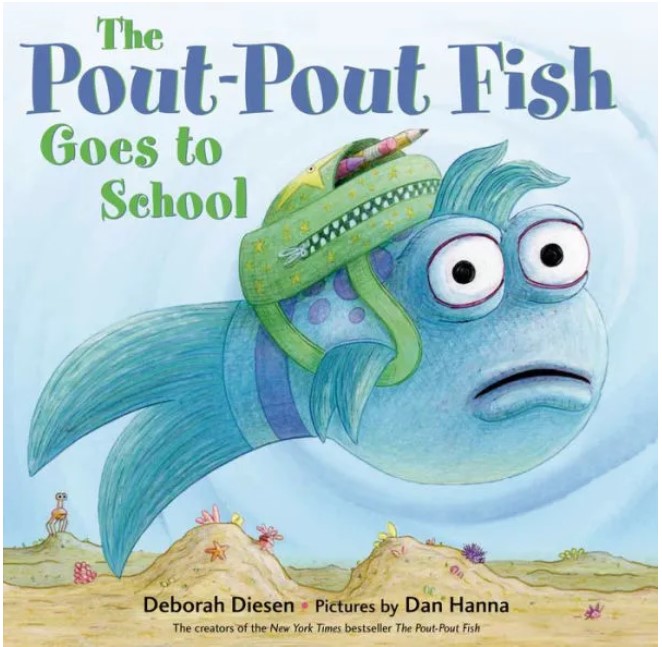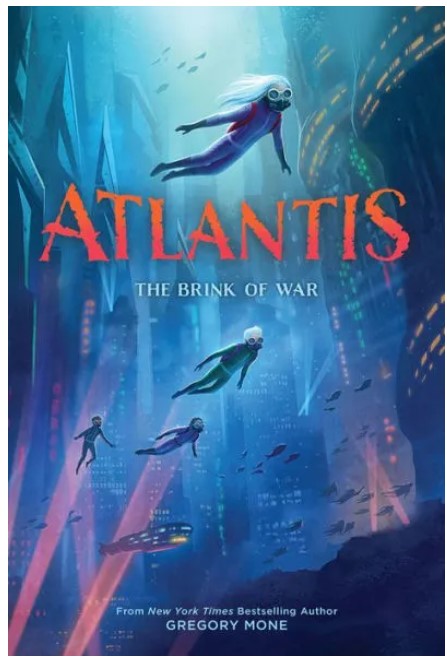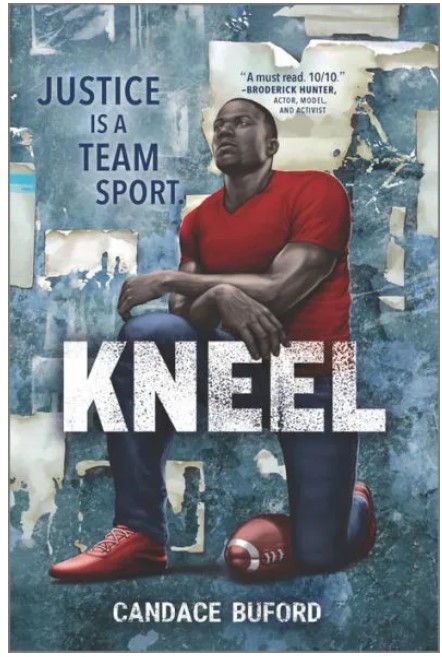Ryan wakes up to find his contractor dad building walls to turn their big old house into a duplex. The family that moves into the other side includes Bizzy Horvat, the pretty girl he has a crush on at school. Bizzy claims her mother is a witch with the power to curse people with clumsiness or, in Bizzy’s case, astonishing beauty.
When a bee gets caught in Bizzy’s hair, Ryan acts so quickly and radically to save her from getting stung that he attracts the attention of a group of micropotents—people with micropowers. He soon realizes that Bizzy and her mother also have such powers. It becomes Ryan’s job, with the help of the other micropotents, to protect the Horvats from a group of witch hunters from their native country, who are determined to kill Bizzy, her mother, and all the other “witches”—micropotents—who have gathered to protect them.
Ryan is a loveable, ultra-smart nerd, who will do anything to keep the people he loves safe. Throughout the novel, readers will enjoy seeing Ryan grow and mature. While Ryan is an interesting character, he is not necessarily relatable. For a sixteen-year-old, Ryan doesn’t talk or act like a typical teenager. For example, when Ryan is on a goodbye date with his girlfriend, “Ryan felt like he was catching a glimpse of a whole life that might have been, a life in which he was able to court her, to drive her to the movies and someday to the hospital to give birth to their child, and strap car seats into the back of the car until the kids were old enough to sit up safely on their own. . .”
Throughout the story, Ryan struggles to understand his parents’ separation. He wonders, “How do married people who loved each other so much they moved in together—how do they get so angry that they completely reject the life they built?” Later, Ryan finds out that his parents separated after his mother got an abortion. Ryan’s father says, “I don’t know if I can live with it. What she did. That was my baby too, we decided together, it was ours, and it’s dead now, and we’ll never have another, and I didn’t even get a vote.” While the topic of abortion is not explored in detail, the feelings of each parent are discussed. Ryan’s complicated family life adds interest to the story.
Unfortunately, Duplex spends too much time explaining Ryan and the other micropotents’ powers, which slows down the plot. In addition, once Bizzy and Ryan begin dating, their constant declarations of love become annoying. Plus, Ryan spends too much time explaining how he doesn’t love Bizzy because she’s beautiful, but because she’s an amazing person. While the story has some suspense, the action doesn’t pick up until the end. Readers who have read Card’s other micropowers novel, Lost and Found, will see the similarities; if readers enjoyed Lost and Found, they will also enjoy Duplex. However, if you’re looking for an excellent book about characters with supernatural power, you may want to read Card’s Ender’s Game Quintet or the Michael Vey Series by Richard Paul Evans instead.
Sexual Content
- When Ryan begins spending time with Bizzy, his mother gets worried. His mother says, “But you are both bags of undifferentiated hormones as volatile as nitroglycerin. So, I’m warning you. Keep your clothes on, buster. Keep your fly zipped. Don’t get that girl pregnant.”
- Bizzy and Ryan are getting to know each other. “‘I’m going back inside now,’ Ryan said, ‘because what you showed me, and what you’ve been saying—it makes me want to hold you and kiss you and all kinds of stuff that would require me not to be in the friend zone.’”
- Bizzy kisses Ryan to hide her face. “To Ryan’s disappointment, it only took one kiss to get them to the library. . .Worse yet, Ryan felt like he had wasted their first kiss on what amounted to camouflage.”
- When Ryan hugs a girl, she says, “If you’re trying to turn me on, it’s not working.”
- Bizzy and Ryan kiss many times. For example, Bizzy “swiveled to him, grabbed his head, and planted a kiss on him that was so passionate it blew the previous one out of the water.”
- Bizzy and Ryan become girlfriend and boyfriend. At school, “She kissed him again. This time it was a real girlfriend kiss. Not long, not passionate, just quick. A declaration of ownership.”
- Bizzy says that some girls “try to do a sexy walk. They end up looking like beginner prostitutes.”
- Bizzy and Ryan get home late. Ryan is worried about their mothers’ reactions. He says, “The thing is, if I get home at ten, they’ll assume I got you pregnant by nine-thirty.”
- Ryan’s mom had an abortion. She says, “It was a termination of an unwanted pregnancy, still in the first trimester.”
- On Halloween, Bizzy and Ryan kiss. “She leaned in to kiss him. . . He did not break the kiss. Not for a good long while.” Later Bizzy, “kept stopping to kiss some unexpected part of his head—ears, nape of the neck, eyelid, cheek, chin. He never thought that having Bizzy kiss him could possibly be annoying, but now he knew that it could. And that she wanted to annoy him.”
Violence
- Alfred shows up at Ryan and Bizzy’s school posing as an FBI agent. When the man makes a move to shove Ryan, “Ryan didn’t wait for the door to close. . . Ryan struck him in the side of the head with all the force of his open hand and extended arm. Alfred’s head crashed into the metal door frame as if his skull were on a track. A think streak of blood trailed after him.” The man dies.
- To force Ryan to test his micropower, his best friend, Defense, begins bullying a classmate named Errol. When Defense calls Errol names, Errol kicks him. “Kicked him with all the force of a game-winning field goal. Defense gave a horrible oof! that sounded as if all the air he had ever inhaled was discharged at once. That was followed by a high gasp and then a whine that told Ryan that Defense probably had some broken ribs.”
- When Errol goes to kick Defense in the head, Ryan leaps up. “He was at exactly the right position to strike Errol on the Adam’s apple. . . The blow landed with Ryan’s full mass behind it. Errol’s body instantly went limp and he fell straight down, with Ryan landing atop him.” The school nurse “performed an emergency tracheotomy and had Errol breathing again.” Both Errol and Defense had to be taken to the hospital.
- A man tries to get into Bizzy’s house. When Ryan tries to stop him, “The man’s hand flew out toward Ryan’s face. Depending on where he meant to land it, it would have blacked Ryan’s eyes or given him a bloody nose. Instead, though, the man’s hand hit the edge of the Burkes’ storm door, which Ryan had partially closed to bring it right to the place where the man’s fist was going.” The man breaks his hand and leaves.
- Two men dressed as police officers go to Bizzy’s house. When they enter the house, one of them reached for his gun. “As the fake cop was drawing his gun, which Ryan knew he was going to use to kill Mrs. Horvat and Bizzy, Ryan got his own hand onto the gun and squeezed a shoulder nerve in the guy so that his grip on the pistol suddenly let go. . .Ryan shot the guy square in the shoulder. . . By now the other fake cop had turned around and was drawing his pistol.” The second man falls to the ground. When the cop begins making noise, Ryan’s friend, “kicked this guy really hard in the head.”
- When two cops are on the ground, another man comes into the house. “The man drew a weapon and began to raise it to aiming position. . . [Ryan] fired his pistol and the man sprouted a hole in his forehead and dropped like a rock.” The man dies.
- Two more men enter the house. “They dropped to the ground, probably not dead because Ryan’s shots took them in the knees. They were screaming in pain while yawning.”
Drugs and Alcohol
- Dahlia, a friend of Ryan’s, has a micropower that makes people yawn. She says, “I’ve done ride-alongs with police guys on patrol, and they found it a lot easier to subdue drunks who were yawning. Even though yawning is sometimes a trigger for vomiting.”
- On Halloween, Defense calls the police to report a drunk driver. He says, “I’m watching an obviously drunk guy get into his car.”
- On Halloween, Defense and Ryan see two drunk guys dressed as policemen. Ryan says, “The friendship of drunks who need somebody to lean on must be one of the great blessings of alcoholic life.”
Language
- Profanity is used rarely. Profanity includes ass, bitch, damn, crap, hell, and piss.
- There is an abundance of name calling including ass-face, bonehead, dimwit, loser, moron, idiot, pervert, psycho bastards, weirdo and whiny baby.
- Bizzy’s mother calls Ryan an “ass-faced idiot.”
- A teacher calls Ryan a “rotten little con man.” Another teacher calls Ryan a “sphincter.”
- A police officer refers to Defense as a “pissant kid.”
- Ryan’s sister says their mom was being a “fishwife.”
Supernatural
- Ryan joins a group of people who have micropowers. For example, one girl “makes people yawn, which partially incapacities them.” A boy can feel spider’s pain. “I know when they die, and I know whether it was deliberate arachnicide or not.”
- According to Bizzy, her micropower comes from being cursed. Bizzy explains, “Mother says that when I was a baby, a Gypsy woman got so angry at Mom that she cursed me with something that would cause my mother grief for the rest of her life. . . I’m not just pretty, Ryan. The glamour is one of astonishing beauty. I’m heartbreakingly beautiful.”
- At first, Ryan cannot see Bizzy’s glamour. “When she was paying no attention to him, he could see how the glamour poked through, stabbing at the hearts of strangers. Unlike people who had resting-angry-face or resting-bitch-face or whatever, Bizzy had resting-beautiful-face. It was all he could see, now that he knew what to look for. Her talent wasn’t that she could make herself beautiful, it was that she could make herself less beautiful. . .”
- Bizzy believes her mother is a witch. She says, “her micropower is one that would have gotten her burned as a witch in 1680. Because if she mutters a certain formula under her breath, things go wrong for that person for a few days. . . They drop things. Like heavy tools on bare feet. Or the baby they’re carrying. Or the file folder they absolutely have to get to the boss’s desk right . .”
- Ryan meets Jannis who can heal people. Jannis explains, “I help put things in order. But nothing deep inside the body. I’m good with broken bones just under the skin. . .” She uses her micropower to help Defense and Errol heal.
Spiritual Content
- Bizzy and Ryan were talking about the different nature of girls and boys. Bizzy says, “Insane boys think God finally got the guy-design right when he made them. But crazy girls think God ran out of good parts and made them out of scrap.”
